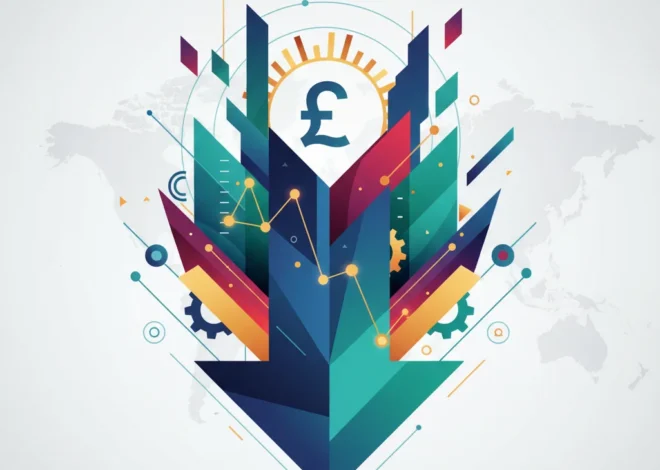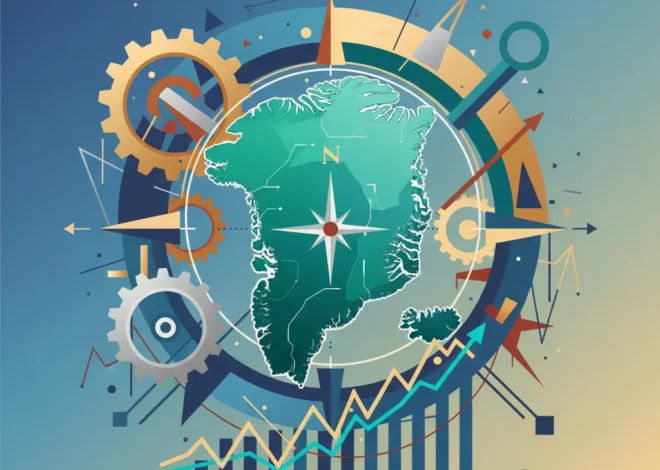
A New Dawn for Middle East Markets? Analyzing the Financial Fallout of the Historic Peace Deal
In a move that has sent ripples across the globe, the first phase of a landmark peace plan has been implemented in the Middle East. The agreement saw Hamas release its final hostages, a development hailed by former U.S. President Trump as a “historic dawn.” In a reciprocal action, Israel freed more than 1,900 Palestinian prisoners, marking a pivotal moment in one of the world’s most protracted conflicts (source).
While the political and humanitarian implications are monumental, for investors, finance professionals, and business leaders, the immediate question is: What does this mean for the markets? A breakthrough of this magnitude is not merely a headline; it is a fundamental shift in the geopolitical landscape that could unlock decades of pent-up economic potential. This analysis will move beyond the headlines to dissect the potential impacts on the global economy, the stock market, and the future of investing in a region on the cusp of transformation.
The Market’s Immediate Response: A Sigh of Relief
Geopolitical shocks are typically priced into the market through a “risk premium,” particularly in sensitive commodities like oil. A durable peace in the Middle East would likely trigger a significant, immediate reaction across several asset classes. We can anticipate:
- Energy Markets: Oil prices would likely see a downturn. The Middle East’s instability has long added a premium to crude oil. A reduction in conflict risk could stabilize supply chains and ease market fears, putting downward pressure on prices. This would have a cascading effect on the global economy, potentially easing inflationary pressures.
- Global Equities: The stock market, particularly in the U.S. and Europe, would likely rally on the news. Lower energy costs, reduced global uncertainty, and new market opportunities are a powerful combination for investor sentiment. Defense and cybersecurity stocks, however, might face headwinds as the perceived need for their services in the region diminishes.
- Regional Markets: The most dramatic shifts would occur locally. The Tel Aviv Stock Exchange would almost certainly surge, driven by optimism across all sectors. More importantly, this could pave the way for the creation and rapid growth of a Palestinian stock exchange, attracting significant foreign direct investment (FDI).
The core of this optimism stems from the scale of the prisoner exchange, with Israel freeing over 1,900 individuals, signaling a deep commitment from both sides to the initial phase of the plan. This is the kind of concrete action that inspires market confidence far more than mere rhetoric.
Unlocking the “Peace Dividend”: A New Economic Frontier
The long-term economic potential, often referred to as the “peace dividend,” is where the most significant opportunities lie. This refers to the macroeconomic benefits that arise from the cessation of conflict, allowing resources to be redirected from defense and security towards productive economic and social investments. For the Israeli-Palestinian context, this dividend could be staggering.
Below is a breakdown of key sectors poised for growth and the investment considerations for each.
| Sector | Potential Economic Impact | Key Investment Considerations |
|---|---|---|
| Infrastructure & Construction | Massive reconstruction efforts in Palestinian territories will be required, creating a multi-billion dollar industry for roads, housing, energy grids, and water systems. This will require immense capital from both public and private sources. | Focus on construction firms, raw material suppliers, and project finance opportunities. International development banking will play a crucial role. |
| Technology & Fintech | Israel’s “Silicon Wadi” could find new partners and markets. A burgeoning Palestinian tech sector, focused on mobile-first solutions, could emerge, driving innovation in financial technology. | Venture capital in startups focusing on cross-border collaboration, B2B software, and fintech solutions for the unbanked and underbanked populations. |
| Tourism & Hospitality | The region is home to some of the world’s most significant historical and religious sites. Stability would unlock a wave of tourism, boosting hotels, travel agencies, and local economies. | Investment in hotel chains, travel tech platforms, and infrastructure supporting tourist flows. |
| Agriculture & Water Tech | Israeli expertise in arid-climate agriculture and desalination could be shared and scaled, improving food security and creating export opportunities for both economies. | Look for companies specializing in agritech, water purification, and sustainable farming. This is a long-term play on regional resource stability. |
The Role of Fintech and Blockchain in Building a Resilient Economy
A lasting peace requires more than just political agreements; it requires the creation of robust, transparent, and inclusive economic institutions. This is where modern financial technology can play a transformative role, leapfrogging legacy systems and fostering trust.
Imagine a Palestinian economy powered by a vibrant fintech ecosystem. Mobile payment systems could become ubiquitous, facilitating commerce and reducing reliance on physical cash. Digital lending platforms could provide micro-loans to small businesses and entrepreneurs, fueling grassroots economic growth. For the large Palestinian diaspora, fintech offers a more efficient and transparent way to send remittances, a vital source of capital.
Furthermore, blockchain technology presents a powerful tool for building trust and transparency. Consider its potential applications:
- Aid Distribution: International aid can be tracked on a distributed ledger, ensuring funds reach their intended recipients and dramatically reducing corruption.
- Land Registry: Creating a secure, immutable record of property ownership could resolve one of the most contentious and complex issues in the region, providing a foundation for investment and development.
- Supply Chain Management: For goods moving between Israeli and Palestinian territories, a blockchain-based system can create a transparent and efficient record, streamlining trade and reducing friction at checkpoints.
By embedding this technology into the fabric of the new economy, it’s possible to build systems that are inherently more trustworthy and resilient than their predecessors.
Global Economic Implications: A Rebalancing Act
The impact of this peace deal extends far beyond the Levant. A stable Middle East recalibrates the global calculus for risk, trade, and economics.
First, the stabilization of energy prices would be a boon for energy-importing nations in Europe and Asia, potentially boosting their manufacturing sectors and consumer spending power. Second, it secures global trade routes. The Suez Canal and the Strait of Hormuz are critical arteries for international shipping. Reduced regional tension lowers the risk of disruption, benefiting the entire global supply chain.
Finally, it opens up a new, dynamic region for Foreign Direct Investment. For decades, capital has flowed to other emerging markets. A peaceful and integrated Israeli-Palestinian economic zone, connected to the wider Arab world, could become a new magnet for investment, competing with hubs in Southeast Asia and Latin America. This represents a fundamental shift in the global investment landscape that corporations and fund managers cannot afford to ignore.
Conclusion: An Era of Cautious Optimism
The release of the final hostages and the reciprocal prisoner exchange is a watershed moment. It represents the first tangible step toward resolving a conflict that has shaped global politics for generations. For the financial world, this is not just another news event; it is a paradigm shift.
The path ahead is fraught with challenges, and the risks of reversal are high. However, the potential economic rewards—a peace dividend measured in trillions of dollars, the birth of new industries, and the integration of a dynamic region into the global economy—are equally immense. Investors, business leaders, and finance professionals must now move from a posture of risk mitigation to one of cautious opportunity assessment. The “historic dawn” may have arrived, but the hard work of building a prosperous and lasting peace has just begun. Watching this space is no longer a niche geopolitical interest; it is a core strategic imperative for anyone involved in the global flow of capital.


